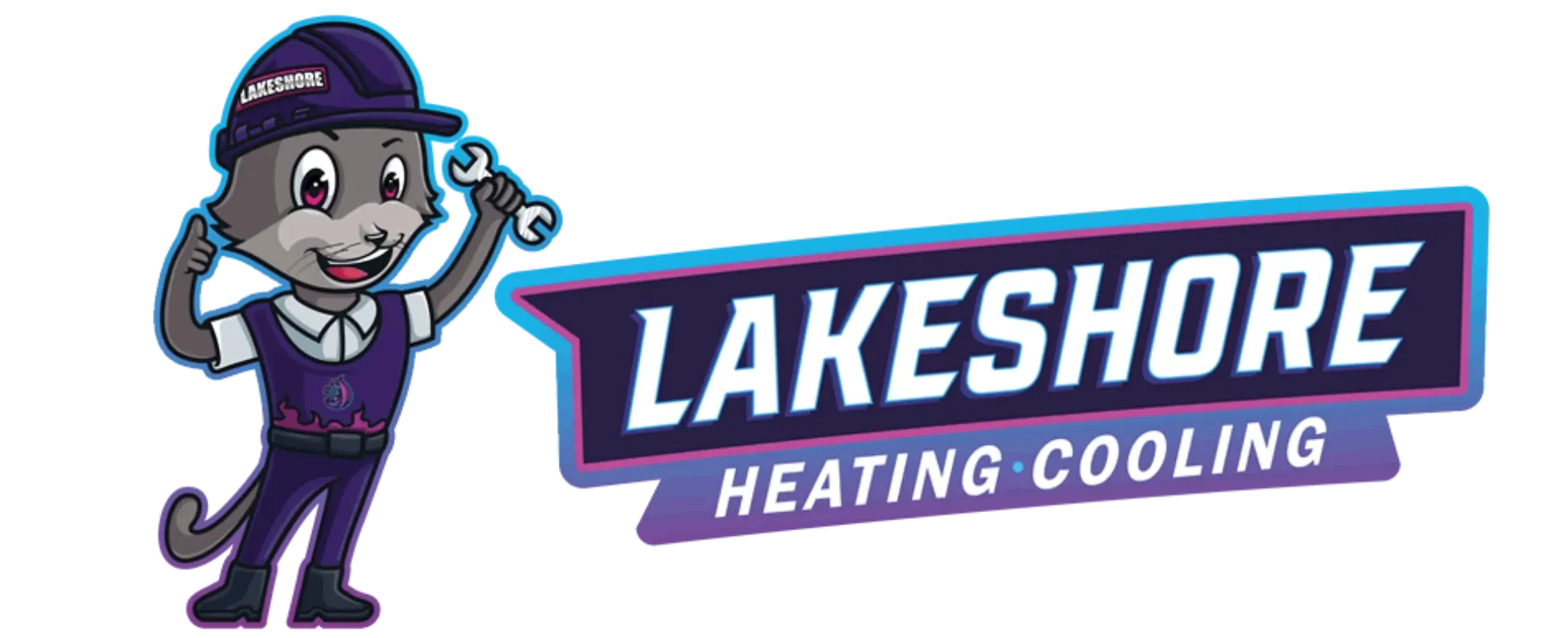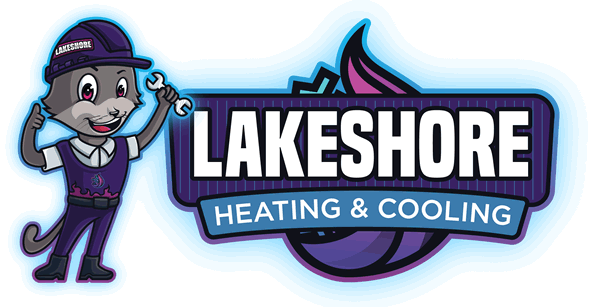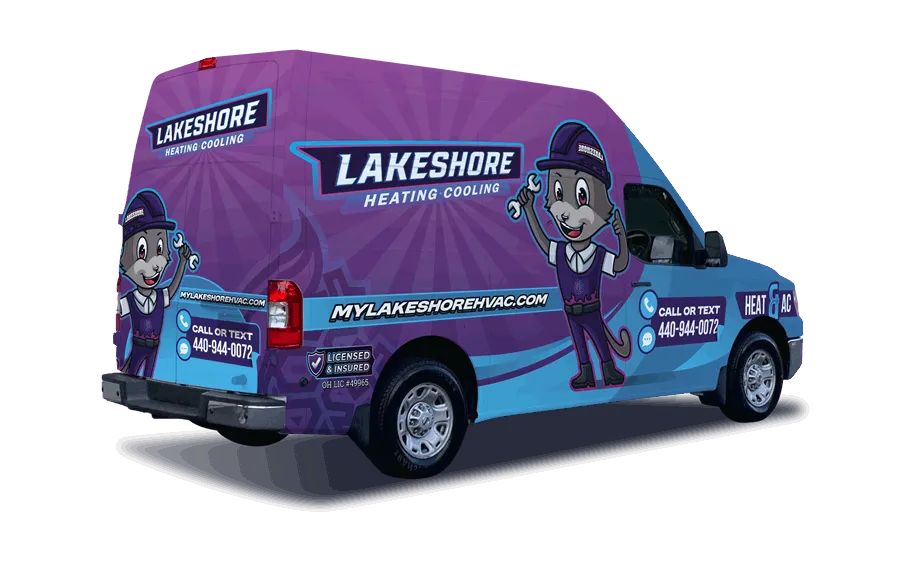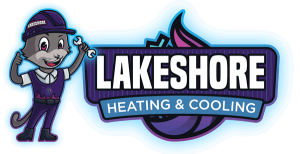Professional Water Heater Installation & Replacement In Eastlake, Ohio.
At Lakeshore Heating & Cooling, we specialize in professional water heater installation and replacement, ensuring your home always has reliable hot water.
Whether you're looking to replace an old hot water tank or install a brand-new system, we offer high-quality water heaters from trusted brands like Rheem, AO Smith, and Ruud. Our expert team will help you select the best unit for your home’s needs, providing efficient and hassle-free installation to keep your water heating system running smoothly for years to come.

If you'd like to schedule an estimate for your water heater replacement please give us a call (440) 944-0072 or fill out our online estimate request form and we'll get right back to you.
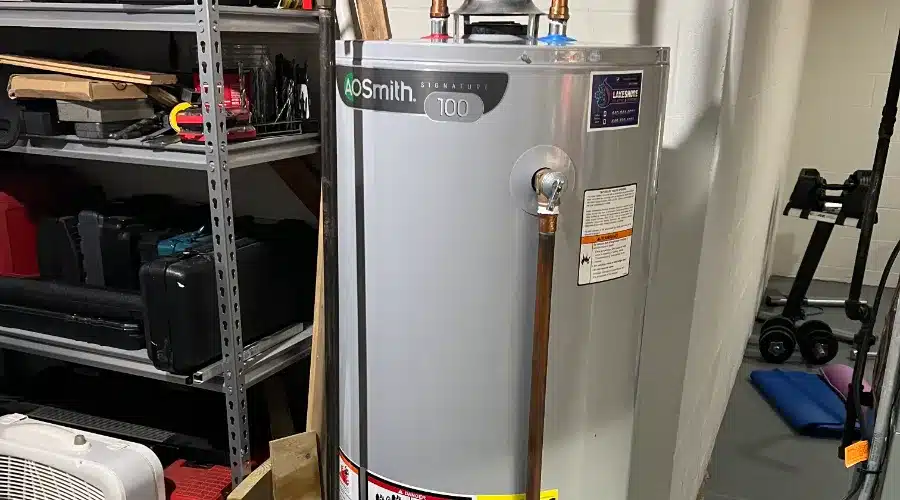
Gas And Electric Water Heater Replacements
When it’s time to replace your hot water tank, one of the key decisions you’ll need to make is whether to install a gas or electric water heater. Both options offer reliable hot water, but there are important differences in terms of energy efficiency, operating costs, and installation requirements that can help you decide which is the best fit for your home.
Gas Hot Water Tanks
Gas water heaters use natural gas or propane to heat water. These units tend to heat water faster than electric models, which can be an important factor for larger households with higher hot water demands. Gas water heaters are generally more energy-efficient in the long term because natural gas is often less expensive than electricity, leading to lower monthly utility bills. Additionally, gas models can still operate during a power outage, providing peace of mind for homes in areas with unreliable electricity.
Why choose a gas water heater?
-
- Existing Gas Connection: If you have an existing gas connection it can be easier to have gas hot water tank installed.
- Faster heating: Gas models heat water more quickly, making them ideal for homes with high hot water usage.
- Lower operating costs: Natural gas is typically less expensive than electricity, leading to lower monthly energy bills.
- Reliable during power outages: Gas water heaters can continue to provide hot water even when the power goes out.
- Better for larger homes: Larger households benefit from the faster recovery rate of gas water heaters, ensuring a consistent supply of hot water.
Electric Hot Water Tanks
Electric water heaters use electricity to heat water, and they tend to be easier and less expensive to install, especially in homes that don’t have access to a gas line. While electric models may heat water more slowly than gas units, they are often considered safer because they don’t rely on gas combustion and don’t require venting. Electric water heaters are also more energy-efficient in areas where electricity costs are lower or when paired with renewable energy sources like solar power.
Why choose an electric water heater?
-
- Easier installation: Electric water heaters are generally simpler and less costly to install, especially in homes without gas hookups.
- Safer operation: Without the need for combustion or venting, electric models offer a lower risk of gas leaks or carbon monoxide concerns.
- Lower upfront cost: Electric models often have a lower initial cost compared to gas water heaters.
- Ideal for smaller homes: For homes with moderate hot water needs, an electric water heater can be a reliable and cost-effective solution.
Which Is Right for Your Home?
Choosing between a gas and electric hot water tank depends on your home’s existing infrastructure, energy costs, and hot water demand. If your home already has a gas line and you need a higher capacity unit, a gas water heater might be the better choice. On the other hand, if you’re looking for a lower-cost installation or live in a smaller home with lower hot water usage, an electric water heater may be more suitable.
At Lakeshore Heating & Cooling, we offer high-quality Rheem, AO Smith, and Ruud water heaters in both gas and electric models. Our expert team will help you select the best option based on your home’s needs and ensure a seamless installation.
If you'd like to schedule an estimate for your water heater installation please give us a call (440) 944-0072 or fill out our online estimate request form and we'll get right back to you.
How Do You Choose The Right Size Water Heater?
Choosing the right size water heater is essential for ensuring your home has enough hot water while avoiding unnecessary energy costs. The size of the water heater depends on the number of people in your household, your hot water usage habits, and the available space in your home. Here’s a guide to help you determine the best size for your needs:
Common Water Heater Sizes and Their Ideal Use
30–40 Gallon Water Heater: This size is typically ideal for households with 1-2 people. If you live in a smaller home or condo and don’t have large hot water demands (such as filling a jacuzzi tub or running multiple showers at once), a 30–40 gallon tank should provide sufficient hot water. These smaller tanks are also a good fit for homes with limited installation space.
40–50 Gallon Water Heater: This is one of the most common sizes and works well for homes with 2-4 people. A 40–50 gallon tank can typically meet the needs of a family that runs daily showers, dishwashers, and washing machines without running out of hot water. This size is also a good option for households where people enjoy longer showers or use standard-sized bathtubs.
50–60 Gallon Water Heater: For households with 4-5 people, a 50–60 gallon water heater is recommended. If you have a larger family or higher hot water demands, such as multiple showers, a large soaking tub, or if you regularly fill a jacuzzi or garden tub, this size will ensure a consistent hot water supply without needing to wait for the tank to refill.
75+ Gallon Water Heater: For homes with 5 or more people or homes that use large amounts of hot water frequently, such as homes with luxury bathrooms, oversized bathtubs, or multiple bathrooms in use at the same time, a 75-gallon or larger water heater is ideal. These systems are designed to handle significant demand without interruption, providing ample hot water even during peak usage times.
What To Consider When Choosing a Water Heater Size
Number of People in Your Home: The more people living in your household, the larger your water heater should be. Consider your family’s routine—how many people typically shower in the morning or evening? How often do you run dishwashers and laundry machines?
Hot Water Usage Habits: Beyond the number of occupants, it’s important to think about how your household uses hot water. Do you take long showers? Do you have jacuzzi tubs, or do you regularly fill large bathtubs? These factors will help determine if a larger tank is necessary to avoid running out of hot water during peak usage.
Available Space: Before deciding on a water heater size, check the available space in your home where the water heater will be installed. Some homes, especially older or smaller ones, may have limited space for a larger tank. If space is tight, you may need to consider a tankless water heater, which can provide unlimited hot water without taking up as much room.
Energy Efficiency: Larger tanks may consume more energy, so it’s important to balance your hot water needs with energy efficiency. If your household has moderate hot water needs, choosing an overly large tank could result in wasted energy. You can also opt for energy-efficient models to minimize your utility costs while meeting your family’s demand.
At Lakeshore Heating & Cooling, we help you select the right size Rheem, AO Smith, or Ruud water heater to meet your home’s hot water needs. Our team will assess your household size, hot water usage, and available space to ensure you get the perfect water heater for consistent, reliable hot water.
If you'd like to schedule an estimate for your water heater installation please give us a call (440) 944-0072 or fill out our online estimate request form and we'll get right back to you.
Should You Replace Your Traditional Water Heater With A Tankless Water Heater?
Deciding whether to replace your traditional tank-style water heater with a tankless water heater depends on your household's specific needs and priorities. While traditional water heaters store hot water in a tank, tankless systems heat water on demand, offering distinct advantages and some trade-offs. Here’s a comparison to help you make the right choice:
Benefits of a Tankless Water Heater
Endless Hot Water Supply: Unlike traditional water heaters that can run out of hot water, tankless water heaters provide an endless supply. This is ideal for households where multiple showers, dishwashers, and washing machines may be in use at the same time.
Energy Efficiency: Tankless water heaters are more energy-efficient because they only heat water when needed, rather than keeping a tank full of water heated at all times. This can lead to significant savings on your energy bills over time. On average, tankless systems are 24-34% more efficient for homes using 41 gallons or less of hot water daily.
Space-Saving Design: Without the need for a bulky water storage tank, tankless systems are compact and can be installed in smaller spaces, such as closets or even mounted on walls. This makes them ideal for homes with limited space or those looking for a more streamlined setup.
Longer Lifespan: Tankless water heaters typically last 20 years or more, which is significantly longer than traditional water heaters, which tend to last about 10-15 years. This extended lifespan can offset the higher initial cost of the unit.
When a Traditional Water Heater Might Be Better
Lower Upfront Costs: Traditional water heaters are less expensive to purchase and install than tankless systems. If you're looking for a more affordable option upfront, a traditional water heater may be the better choice, especially for homes that don’t have high hot water demand.
Simplicity: A traditional water heater’s tank design is straightforward, and for many households, it can meet daily hot water needs without running out—especially if sized appropriately. Additionally, traditional systems require less complex installation and may not need the gas line upgrades that a tankless system might.
Consistent Energy Use: If you live in an area where energy rates are low, the energy savings from a tankless water heater may not be as noticeable. Traditional units also don't require changes to your electrical or gas system, which can sometimes be necessary with tankless systems.
When to Consider a Tankless Water Heater
High Hot Water Usage: If your household uses a lot of hot water throughout the day—such as families with multiple bathrooms, frequent showers, or luxury features like jacuzzi tubs—a tankless water heater will ensure you never run out of hot water.
Energy Savings Goals: If reducing your energy bills is a priority, and you're willing to make a higher upfront investment, a tankless water heater will pay off in the long run with lower operational costs.
Limited Space: Homes or apartments with limited space may benefit from the compact design of a tankless water heater, freeing up room for other uses.
Replacing your traditional water heater with a tankless water heater can provide significant advantages, particularly in terms of energy savings and endless hot water. However, the higher initial cost and possible need for system upgrades may make a traditional water heater the better option for homeowners on a budget or with moderate hot water needs. At Lakeshore Heating & Cooling, we can help assess your household’s specific hot water usage and guide you toward the best choice for your home—whether it’s a traditional or tankless water heater.
Whether you're looking to maximize energy efficiency, save space, or ensure a constant supply of hot water, tankless water heaters offer a flexible solution for a wide range of applications.
If you'd like to schedule an estimate for your tankless water heater installation please give us a call (440) 944-0072 or fill out our online estimate request form and we'll get right back to you.
Why Choose Lakeshore Heating & Cooling For Water Heater Installation?
We know you have dozens of choices when it comes to hiring a company to install your new water heater. Here's what makes us different.
#1. Family-Owned Tradition: With roots in a family business, we bring years of experience and values passed down through generations. Our commitment to honesty, integrity, and pride in workmanship ensures you get the quality service you deserve.
#2. Customer-First Approach: We’re not focused on pushing sales or unnecessary upgrades. Our priority is making sure you’re comfortable and satisfied with our work, offering personalized solutions that fit your needs. With a 5 star rating and over 145 reviews we aim to exceed our customers expectations.
#3. Expert Craftsmanship: Taught by a master of the trade, we take pride in the quality of our work. Every job, big or small, is handled with care and attention to detail.
#4. Honoring Legacy, Building Trust: We named our company Lakeshore to honor our family’s legacy and our promise to deliver the same level of respect, trust, and professionalism that our founder stood for.
#5. Reliable and Transparent: From initial consultation to project completion, we’re with you every step of the way. Our team provides honest assessments and clear communication, so you always know what to expect. Choose Lakeshore Heating and Cooling for service rooted in tradition, trust, and a dedication to your comfort. --- This emphasizes the company's core values, customer focus, and high-quality service.
If you'd like to schedule an estimate for your water heater installation please give us a call (440) 944-0072 or fill out our online estimate request form and we'll get right back to you.
Do You Have Questions About Water Heater Installation?
If your water heater is over 10-15 years old, requires frequent repairs, or isn't providing enough hot water, it might be time to replace it. Other signs include strange noises, rust-colored water, or water pooling around the unit. If you're unsure, our technicians can inspect your water heater and advise whether repair or replacement is the best option.
The size of your water heater depends on your household size and hot water usage. For example, a 30-40 gallon tank is ideal for 1-2 people, while a 40-50 gallon tank works well for 2-4 people. Larger households or those with higher water demands (e.g., multiple showers or jacuzzi tubs) may need a 50-75 gallon tank. Our experts can help you choose the right size based on your specific needs.
A typical water heater installation usually takes between 2 to 4 hours. This includes removing the old unit, preparing the installation area, setting up the new tank, and ensuring proper connections. If additional work, such as modifying the plumbing or installing a new gas line, is required, the process may take longer.
The cost of installing a new traditional water heater varies based on the tank size, brand, and any additional installation requirements (such as upgrading pipes or venting). On average, installation costs range from $1,000 to $3,000, including the cost of the unit and labor. We provide an upfront estimate so you know exactly what to expect.
With proper maintenance, a traditional tank-style water heater can last between 10 to 15 years. Regular maintenance, such as flushing the tank to remove sediment buildup and checking the anode rod, can help extend its lifespan.
The choice between gas and electric water heaters depends on your home’s setup and energy costs. Gas water heaters generally heat water faster and have lower operational costs, but they require access to a natural gas line. Electric water heaters are easier to install and may be more cost-effective in areas where electricity rates are lower or gas isn't available. Both options have pros and cons, and we can help you decide which is best for your home.
Traditional water heaters require periodic maintenance to ensure efficiency and longevity. Annual maintenance includes flushing the tank to remove sediment, inspecting the anode rod, and checking for leaks or corrosion. These simple tasks can prevent major issues and extend the life of your water heater.
A high-efficiency water heater uses advanced insulation and heat transfer technologies to reduce energy consumption. While they typically cost more upfront, high-efficiency models can save money on utility bills in the long run. They are ideal for homeowners looking to reduce energy costs and improve environmental impact.
While it’s possible for experienced DIYers to install a water heater, it’s not recommended. Improper installation can lead to gas leaks, water damage, or voided warranties. Professional installation ensures your water heater is installed safely, up to code, and working efficiently.
Yes, many local and federal programs offer rebates or tax incentives for installing high-efficiency or ENERGY STAR®-certified water heaters. These incentives can help offset the cost of your new water heater. Our team can help you explore available rebates and assist with the application process.
Of course we can. Insurance companies typically like to see water heaters replaced every 10-15 years. If you've been insured with them for that long they generally send reminder letters that it's time to replace your water heater. When water heaters fail they can end up causing lots of damage to your home. Insurance companies try to avoid this by encouraging homeowners to replace their water heater. We can replace your water heater and provide you with the documentation you need to provide your insurance company.
Do you have questions about water heater installation or hot water tanks that weren't answered here? Please give us a call (440) 944-0072 or fill out our online estimate request form and we'll get right back to you.
Get Your Quote For
Water Heater Installation
OUR SERVICES
TESTIMONIALS
Lakeshore Heating and Cooling is not only the best HVAC contractor I have worked with, but probably the best contractor period. When our 25-year-old Trane was down, Matt Smith was the only one who was willing to get it up and running to buy us time to save for a new system. He came out personally on a Saturday night and stayed late until it worked. When it was time for our new Trane, Lakeshore installed a top-end system at a fair price. The installation team was professional, thorough, and meticulous. Look at attached pictures of the beautiful installation! I have and will continue to recommend Lakeshore to all my friends and relatives. Recent update . . . They saved my mother-in-law $12K by repairing her system during the heat wave when everyone else pushed for a full replacement.
Very professional and high tech. Matt did a wonderful job fixing our AC.
Have used Lakeshore Heating and Cooling for several years, highly recommend for courtesy and getting the job done. 👍
The service we received was amazing. I will be recommending Lakeshore Heating and Cooling to all my friends and family!
I called to get a leak in my A/C checked. Matt B. was super knowledgeable, patient, and efficient. He knew exactly what to do, explained the process and reasoning, and was friendly while doing so! I felt a sense of relief from the professionalism Matt demonstrated as well as confidence in being able to call with any follow up questions or concerns in the future. Thanks, Matt!
Matt Smith owner and Matt Bucher one of his technicians have a great thing going great business with integrity at its finest!
